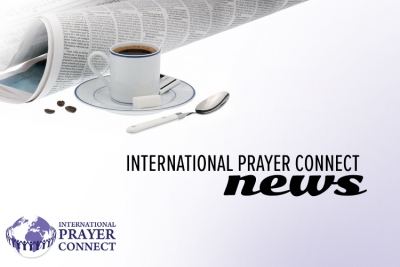Intercessory Prayer

An excerpt from "The Powers that Be: Theology for a New Millennium" by Walter Wink.
"Intercessory prayer is spiritual defiance of what is in the way of what God has promised. Intercession visualizes an alternative future to the one apparently fated by the momentum of current forces. Prayer infuses the air of a time yet to be into the suffocating atmosphere of the present. History belongs to the intercessors who believe the future into being. This is not simply a religious statement. It is also true of Communists or capitalists or anarchists. The future belongs to whoever can envision a new and desirable possibility, which faith then fixes upon as inevitable. This is the politics of hope. Hope envisages its future and then acts as if that future is now irresistible, thus helping to create the reality for which it longs. The future is not closed. There are fields of forces whose actions are somewhat predictable. But how they will interact is not. Even a small number of people, firmly committed to the new inevitablity on which they have fixed their imaginations, can decisively affect the shape the future takes.
These shapers of the future are the intercessors, who call out of the future the longed-for new present. In the New Testament, the name and texture and aura of that future is God's domination-free order, the reign of God.
No doubt our intercessions sometimes change us as we open ourselves to new possibilities we had not guessed. No doubt our prayers to God reflect back upon us as a divine command to become the answer to our prayer. But if we are to take the biblical understanding seriously, intercession is more than that. It changes the world and it changes what is possible to God. It creates an island of relative freedom in a world gripped by unholy necessity. A new force field appears that hitherto was only potential. The entire configuration changes as the result of the change of a single part. A space opens in the praying person, permitting God to act without violating human freedom. The change in one person thus changes what God can thereby do in that world.
All of Jesus' teachings on prayer feature imperatives. (See for example, Luke 11:9 "Ask.....search.....knock.") In prayer we are ordering God to bring the Kingdom near. It will not do to implore. We have been commanded to command. We are required by God to haggle with God for the sake of the sick, the obsessed, the weak, and to conform our lives to our intercessions. This is a God who invents history in interaction with those "who hunger and thirst to see right prevail" (Matt. 5:6, REB). How different this is from the static god of Greek philosophy that all these years has lulled so many into adoration without intercession !
Praying is rattling God's cage and waking God up and setting God free and giving this famished God water and this starved God food and cutting the ropes off God's hands and the manacles off God's feet and washing the caked sweat from God's eyes and then watching God swell with life and vitality and energy and following God wherever God goes.
When we pray we are not sending a letter to a celestial White House, where it is sorted among piles of others. We are engaged, rather, in an act of co-creation, in which one little sector of the universe rises up and becomes translucent, incandescent, a vibratory centre of power that radiates the power of the universe.
History belongs to the intercessors, who believe the future into being. If this is so, then intercession, far from being an escape from action, is a means of focusing for action and of creating action. By means of our intercessions we veritably cast fire upon the earth and trumpet the future into being."


